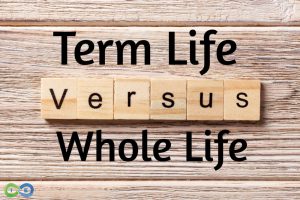Life insurance is a crucial part of financial planning, providing essential protection for your loved ones in the event of your death. Whether you’re new to life insurance or seeking to update your policy, understanding its benefits, the different types available, and tips for choosing the right plan in 2025 is important. This article will explain everything you need to know about life insurance and how to navigate your options effectively.
The Importance of Life Insurance
At its core, life insurance is designed to offer financial security to your beneficiaries after your passing. The primary benefit of life insurance is the death benefit, which is paid out to your designated beneficiaries. This money can be used to cover various expenses such as funeral costs, medical bills, debts, mortgages, or daily living expenses. Life insurance can also serve as a long-term financial tool for building savings or leaving a legacy for your family.
One of the most significant advantages of life insurance is peace of mind. Knowing that your family will be financially protected if something happens to you can alleviate stress and allow you to focus on other aspects of your life. Whether you have young children, a spouse, or other dependents, life insurance helps ensure they are not burdened with financial hardship when you’re no longer around.
Types of Life Insurance
When it comes to life insurance, there are several types to consider. The right type for you will depend on your financial goals, budget, and family situation. Below are the most common types of life insurance policies available:
- Term Life Insurance
Term life insurance is the most straightforward and affordable option for most individuals. As the name suggests, it provides coverage for a specific term, typically ranging from 10 to 30 years. If you pass away during the term, your beneficiaries receive the death benefit. However, once the term expires, the policy ends with no payout. Term life insurance is ideal for people with temporary financial needs, such as those paying off a mortgage, supporting children, or covering educational expenses.
The main appeal of term life insurance is its affordability. Since it is temporary and does not accumulate cash value, premiums are much lower compared to permanent life insurance policies. However, it’s important to note that if you outlive your term, you won’t receive a payout, and premiums may rise if you choose to renew the policy.
- Whole Life Insurance
Whole life insurance is a form of permanent life insurance that provides coverage for your entire life. Unlike term life, whole life insurance never expires as long as premiums are paid. One of the key features of whole life insurance is its cash value component. A portion of the premiums you pay goes toward building a cash value that grows over time. You can borrow against or withdraw this cash value if needed.
Whole life insurance is more expensive than term life insurance due to its permanent coverage and cash value accumulation. However, it offers a sense of security and can be an effective tool for estate planning or leaving a financial legacy. Whole life insurance premiums are typically fixed and do not increase with age, providing consistency in long-term planning.
- Universal Life Insurance
Universal life insurance is a type of permanent life insurance that offers more flexibility than whole life insurance. While it still provides lifelong coverage and a cash value component, universal life insurance allows policyholders to adjust their premiums and death benefits over time. This flexibility makes it an attractive option for people who anticipate changes in their financial situation or those seeking greater control over their insurance coverage.
Like whole life insurance, universal life policies accumulate cash value, but the growth rate can vary based on the performance of underlying investments. This means there is potential for higher returns, but also more risk.
- Variable Life Insurance
Variable life insurance is another form of permanent life insurance, offering both a death benefit and a cash value component. The key difference between variable life insurance and other permanent policies is that the cash value is invested in a range of securities, such as stocks and bonds, providing the potential for greater growth. However, these investments also carry risk, meaning the cash value could fluctuate.
Variable life insurance is best suited for individuals who are comfortable with investment risks and are seeking growth potential within their life insurance policy. Like universal life, it offers flexibility in premiums and death benefits but requires more active management.
- Final Expense Insurance
Final expense insurance, also known as burial insurance, is designed to cover the costs associated with end-of-life expenses, such as funeral and burial costs. This type of policy typically has a smaller death benefit and is easier to qualify for, making it ideal for individuals who may not need or be able to afford a large life insurance policy. It can be particularly useful for older individuals or those who want to ensure their family is not burdened with funeral expenses.
Benefits of Life Insurance
Life insurance offers numerous benefits, making it an essential part of a comprehensive financial plan. Some of the key benefits include:
- Financial Protection for Loved Ones
Life insurance provides financial support to your family or beneficiaries in the event of your passing. This money can be used to replace lost income, cover outstanding debts, and manage ongoing living expenses, reducing the financial burden on your loved ones. - Wealth Building and Cash Value
Certain types of life insurance, such as whole life, universal life, and variable life insurance, accumulate cash value over time. This cash value can serve as an investment, grow tax-deferred, and be used as a source of funds in the future. You can borrow against or withdraw from the cash value, offering financial flexibility. - Tax Benefits
The death benefit from a life insurance policy is generally paid out tax-free to your beneficiaries, making it an efficient way to transfer wealth. Additionally, the cash value growth in permanent life insurance policies is tax-deferred, allowing it to grow without immediate tax implications. - Peace of Mind
Knowing that you have life insurance in place provides peace of mind, as you can rest assured that your family will be taken care of financially after your passing. This sense of security is invaluable and can help reduce anxiety about the future.
Tips for Choosing Life Insurance in 2025
- Assess Your Needs
Before purchasing life insurance, take the time to assess your needs. Consider factors such as your age, health, income, and family situation. How many dependents do you have? What are your financial obligations, such as a mortgage or student loans? Understanding your needs will help you determine the appropriate type and amount of coverage. - Compare Quotes
Different insurance providers offer varying rates for life insurance policies, so it’s important to shop around and compare quotes. Many insurers provide online tools that allow you to easily compare policies and find the best deal for your budget. - Consider Your Budget
Life insurance premiums can vary widely, depending on the type of policy and the coverage amount. Be sure to choose a policy that fits within your budget, as paying too much in premiums could lead to financial strain. While whole life insurance offers lifelong coverage, term life insurance is often a more affordable option for those on a tight budget. - Review Your Policy Regularly
As your life circumstances change, such as getting married, having children, or buying a home, it’s essential to review and update your life insurance policy. Regularly reassessing your needs ensures that your coverage continues to meet your financial goals. - Work with a Financial Advisor
If you’re unsure which type of life insurance is best for you, consider working with a financial advisor or insurance professional. They can help you navigate the options, determine the right coverage for your needs, and make informed decisions about your financial future.
Conclusion
Life insurance is an important tool for protecting your loved ones and securing your financial future. Whether you choose term life, whole life, or any other type of policy, it’s essential to understand the benefits, types, and tips for selecting the right coverage in 2025. By assessing your needs, comparing quotes, and making informed decisions, you can ensure that your family is financially protected and prepared for the future. Life insurance not only provides financial security but also peace of mind, knowing that you’ve taken the necessary steps to safeguard your loved ones’ well-being.



